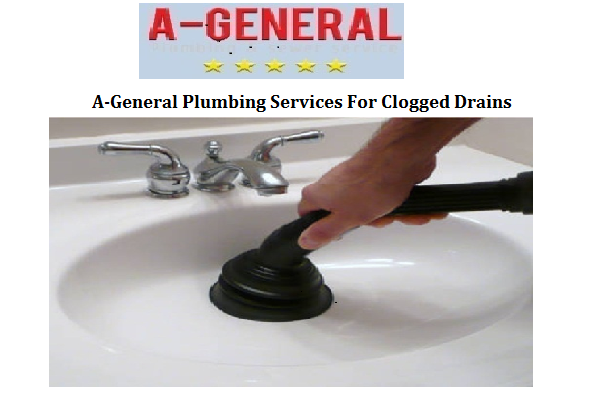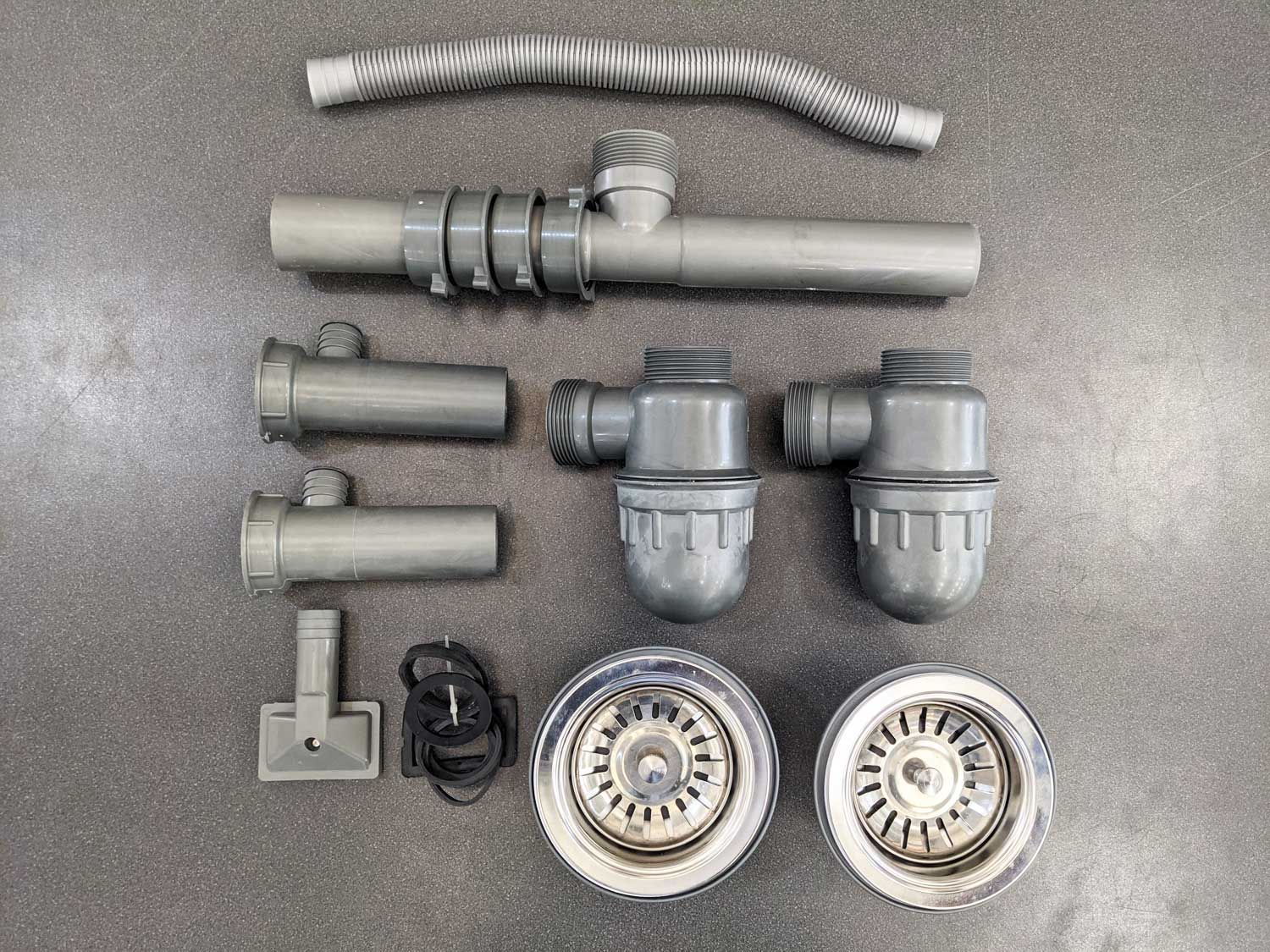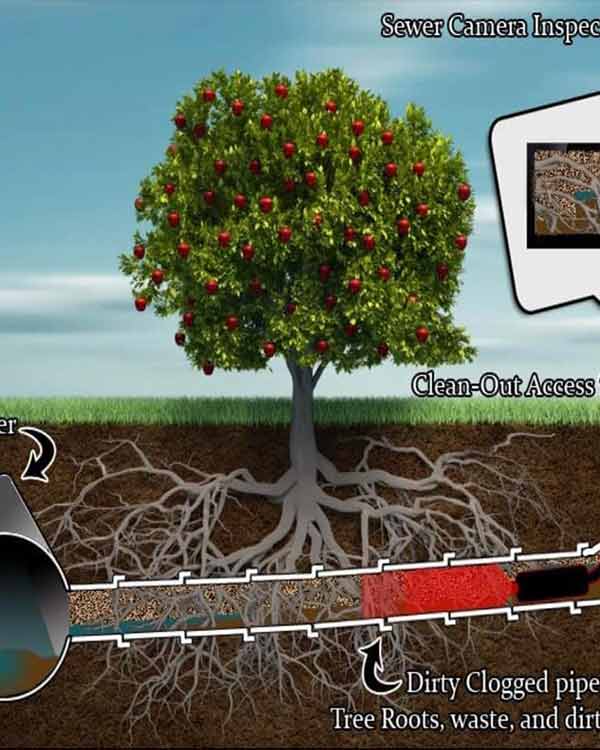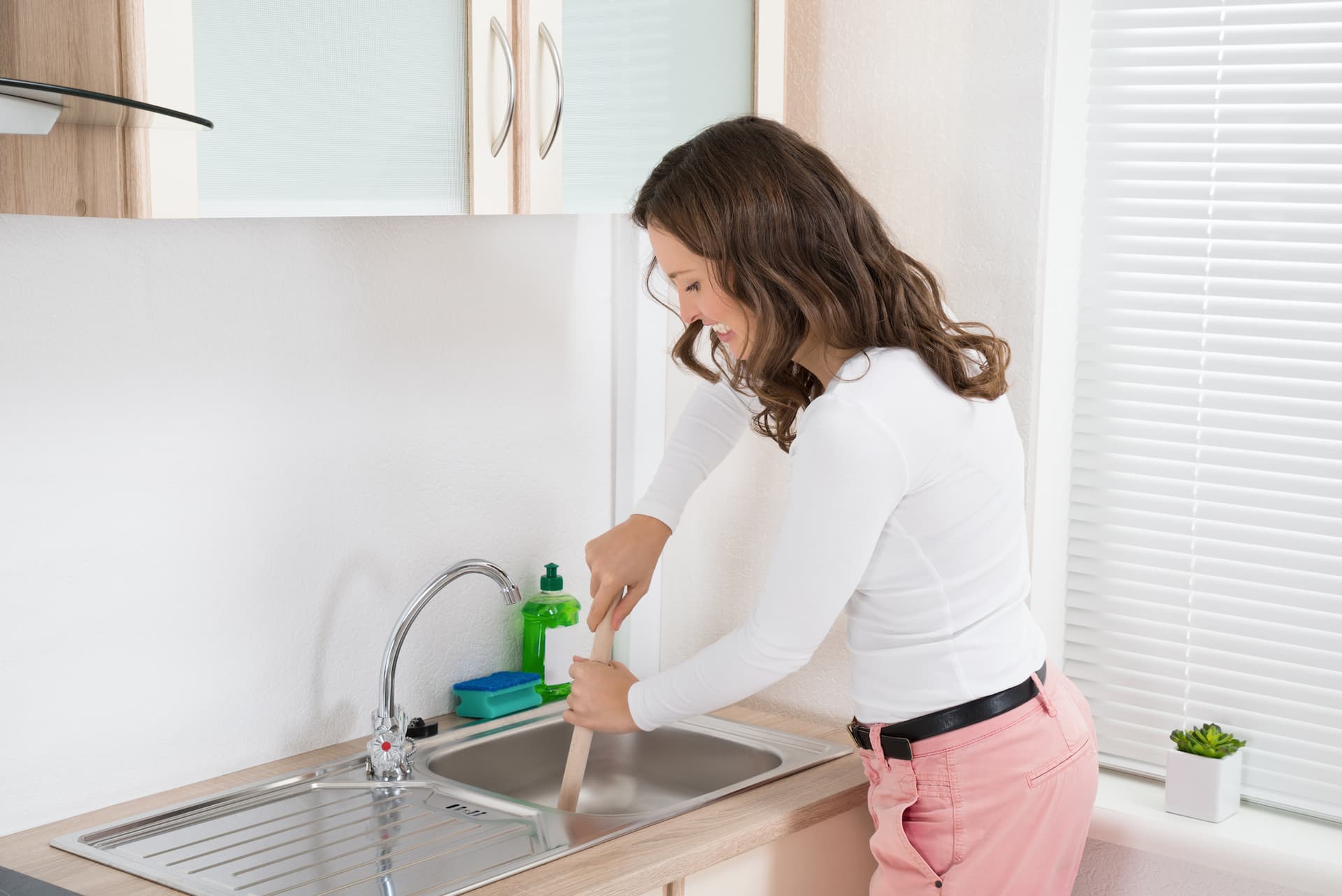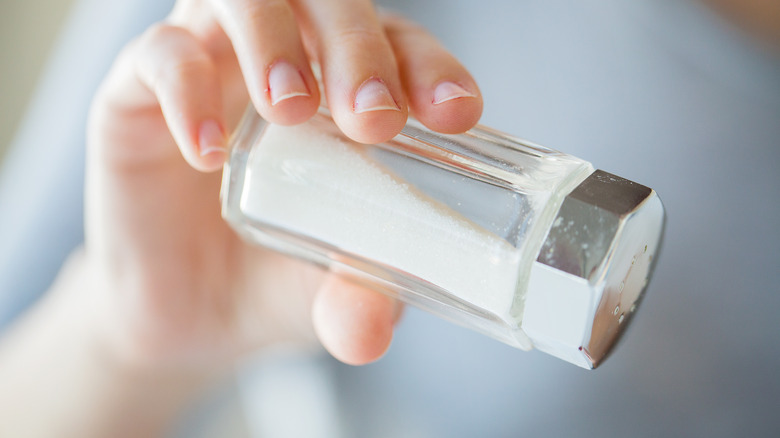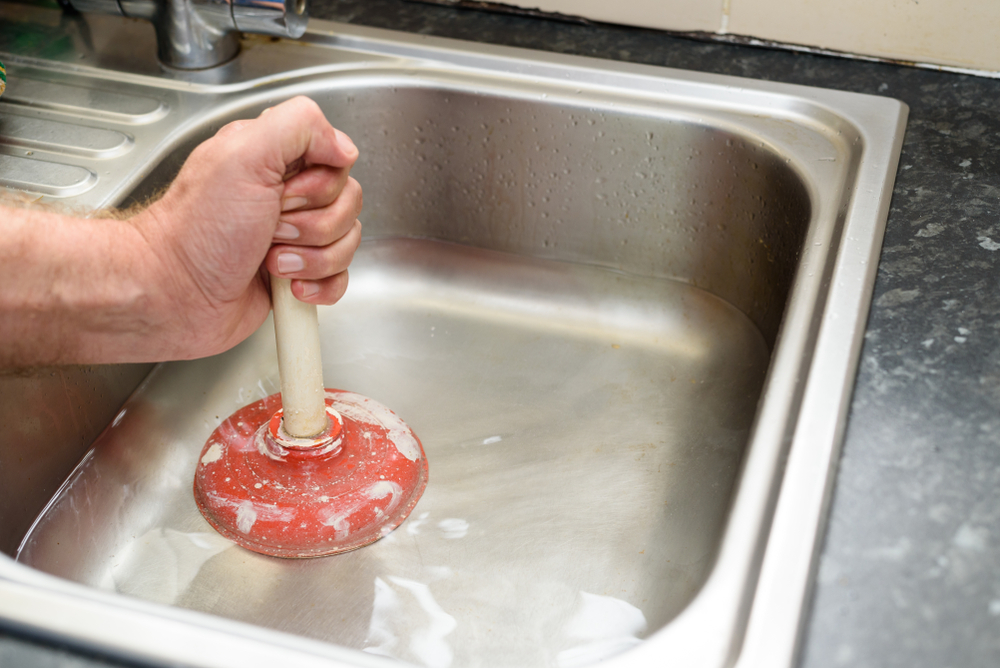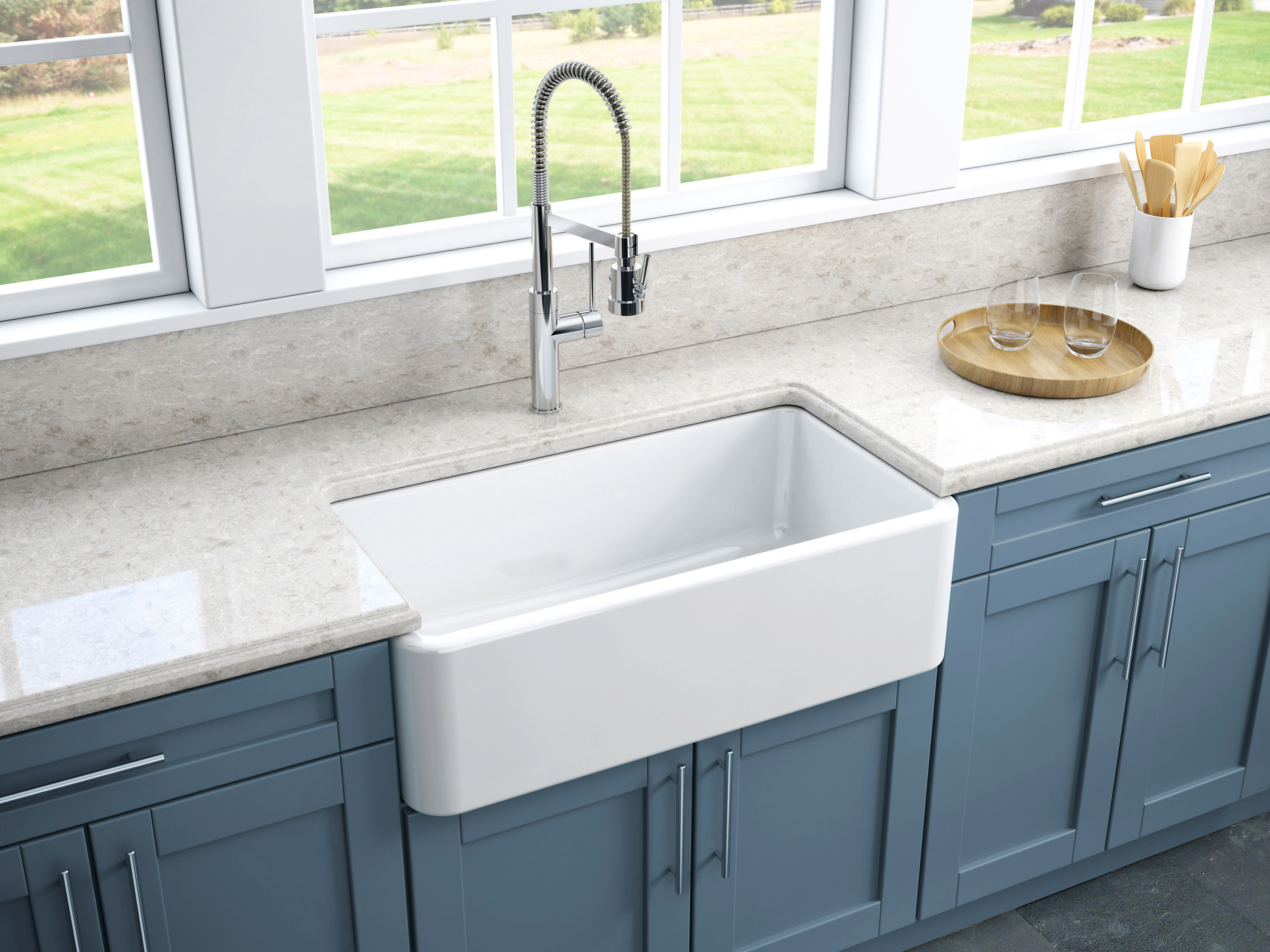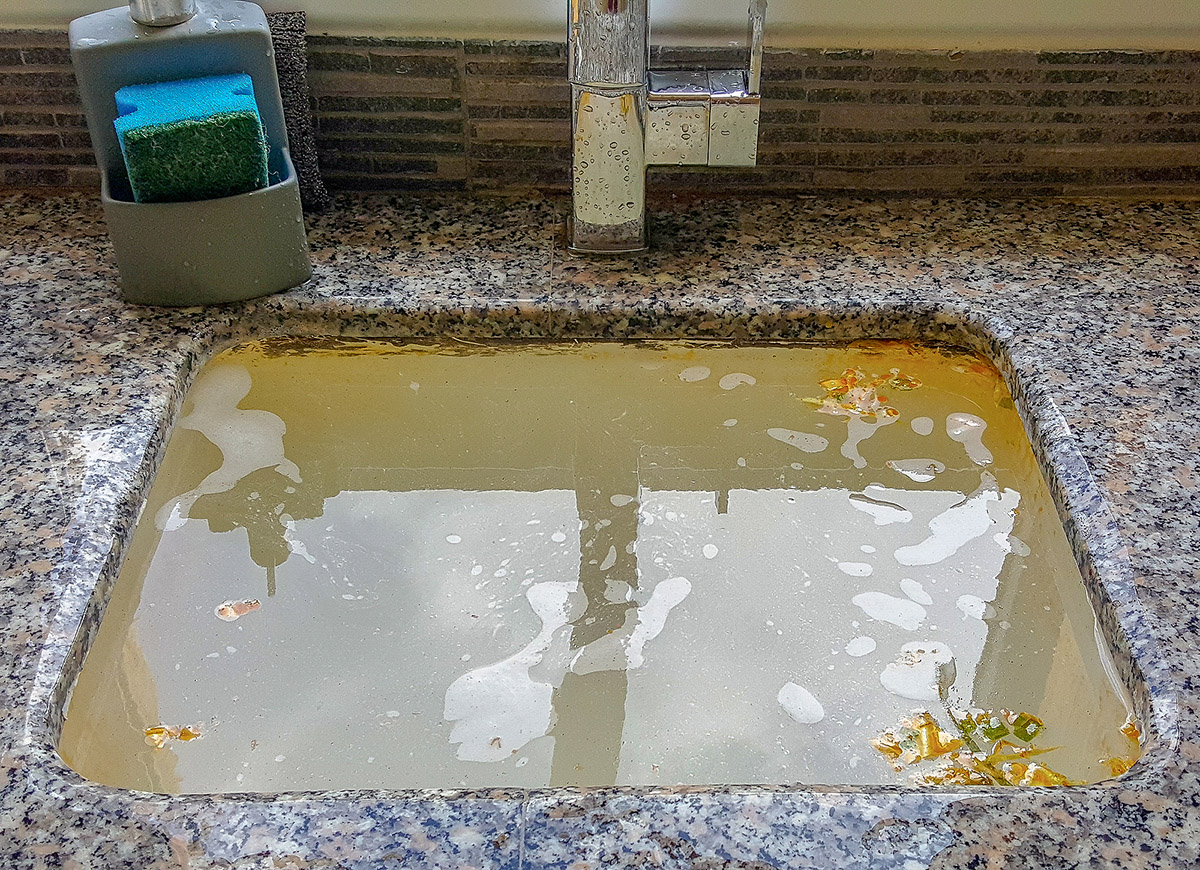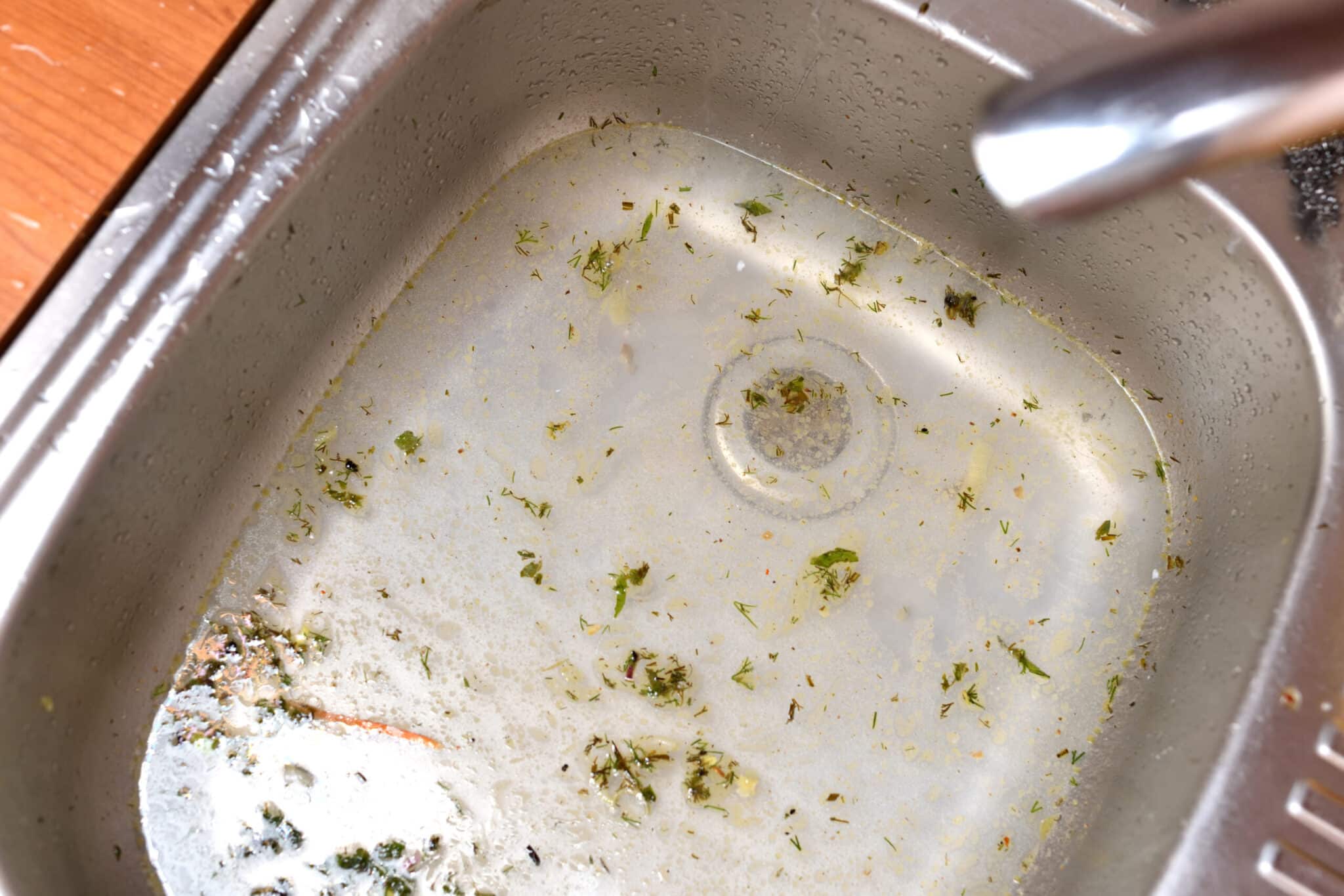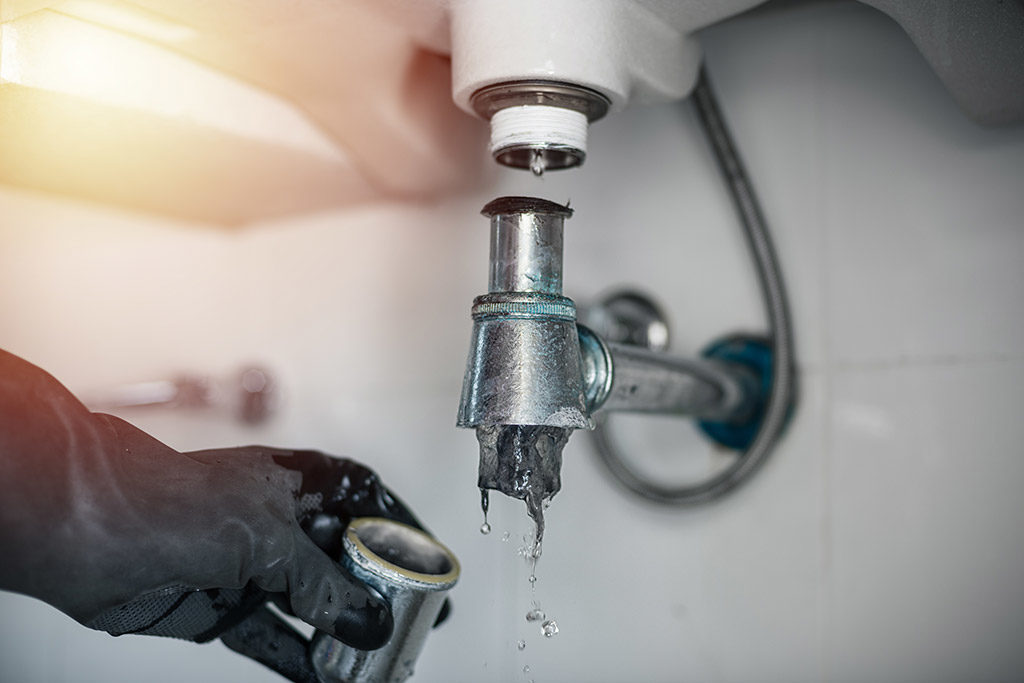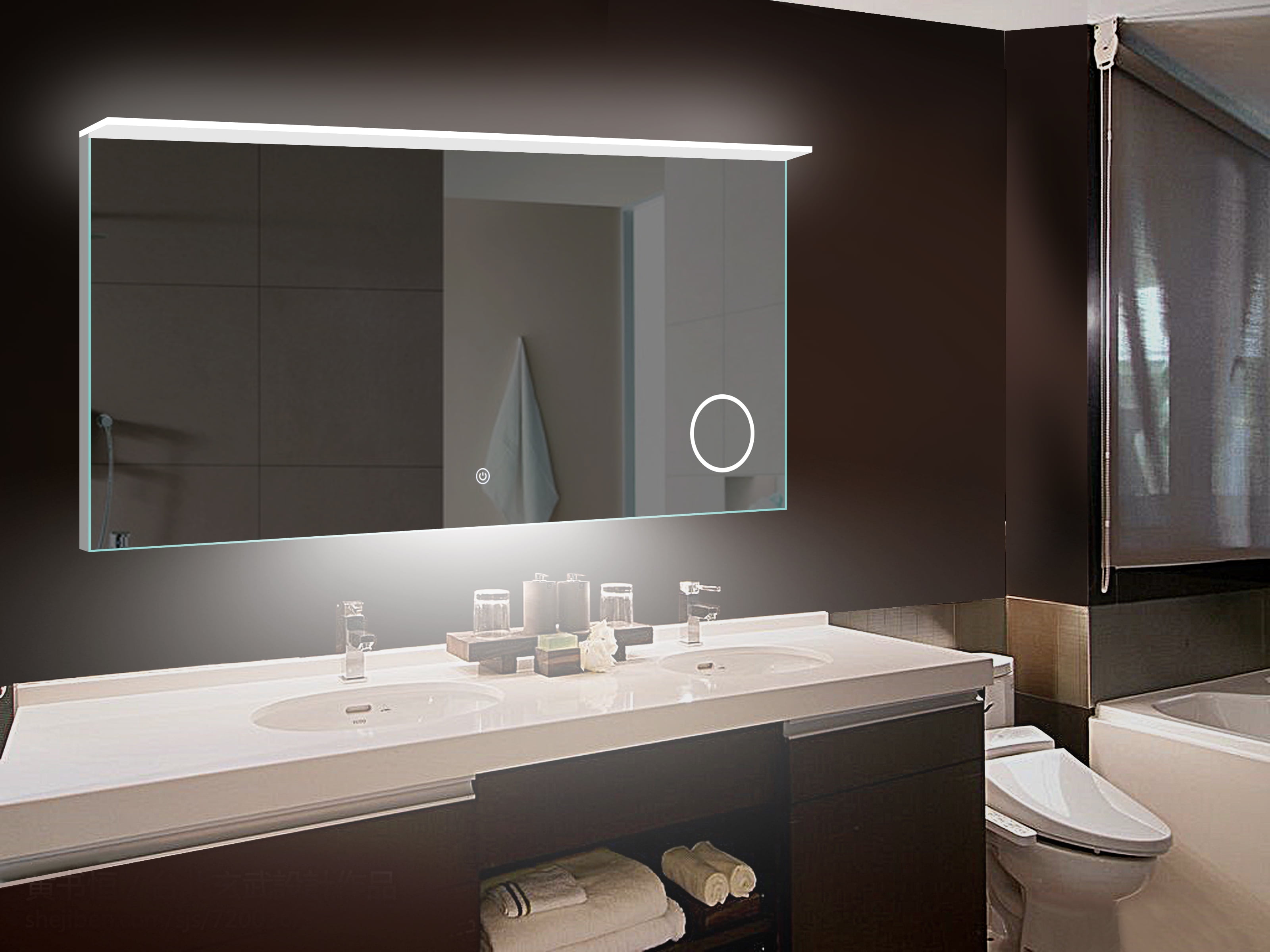Dealing with a clogged kitchen sink can be a major inconvenience. Not only does it disrupt your daily routine, but it can also lead to unpleasant odors and potential damage to your plumbing system. However, clearing a clog in your kitchen sink doesn't have to be a daunting task. With the right tools and techniques, you can easily unclog your sink and get back to your daily tasks in no time.1. How to Clear a Clogged Kitchen Sink
If you prefer to use natural methods for clearing clogs, then baking soda and vinegar are your best friends. This powerful duo works by creating a chemical reaction that can break down and dissolve stubborn clogs. To use this method, start by pouring one cup of baking soda down the drain, followed by one cup of vinegar. Let the mixture sit for 10-15 minutes before flushing it with hot water. This method is not only effective but also environmentally friendly.2. Unclogging a Kitchen Sink with Baking Soda and Vinegar
A plunger is a tried and true tool for clearing clogs in any drain. To use a plunger for your kitchen sink, fill the sink with enough water to cover the rubber cup of the plunger. Position the plunger over the drain and push and pull it vigorously to create suction. This suction can help dislodge the clog and allow it to flow down the drain. If the clog doesn't budge, try using a plunger with a flange, which is specifically designed for sinks.3. Using a Plunger to Clear a Clogged Kitchen Sink
If you have a stubborn clog that can't be cleared with a plunger, then a drain snake can be your next best option. A drain snake, also known as an auger, is a long, flexible tool that is inserted into the drain to break up and remove clogs. To use a drain snake, insert it into the drain and twist it while pushing it further down. Once you feel resistance, continue twisting and pulling the snake out to remove the clog.4. Clearing a Kitchen Sink Clog with a Drain Snake
Aside from baking soda and vinegar, there are other natural methods that you can try to clear a clogged kitchen sink. One option is using hot water, which can help melt away grease and other substances that may be causing the clog. Another option is using a mixture of salt and baking soda, which can help break down and dissolve clogs. You can also try pouring boiling water down the drain to loosen and remove stubborn clogs.5. Natural Ways to Clear a Clogged Kitchen Sink
Prevention is always better than dealing with a clogged sink. To avoid having to go through the hassle of clearing a clog, there are some simple steps you can take to prevent them from happening in the first place. These include regularly pouring hot water down the drain to prevent buildup, avoiding pouring grease and oil down the drain, using a drain catcher to catch food particles, and being mindful of what you put down the sink.6. Tips for Preventing Kitchen Sink Clogs
If natural methods and tools don't work, you can turn to chemical drain cleaners as a last resort. These cleaners are designed to dissolve and break down clogs, making them an effective option for stubborn clogs. However, it's important to use them carefully and follow the instructions on the label. These cleaners contain harsh chemicals that can be harmful to your skin and eyes, so make sure to wear protective gear and use them in a well-ventilated area.7. Chemical Drain Cleaners for Clearing Kitchen Sink Clogs
In some cases, the clog may be located in the sink trap, which is the curved pipe located under the sink. To remove and clean the trap, first place a bucket under the trap to catch any water. Then, use pliers or a wrench to loosen and remove the nuts on both ends of the trap. Once the trap is removed, clean it out with a wire brush and hot water. Then, reattach the trap and run hot water down the drain to ensure the clog is cleared.8. How to Remove and Clean a Kitchen Sink Trap
If all else fails, it may be time to call in the professionals. A licensed plumber has the tools and expertise to effectively clear any clog in your kitchen sink. They can also identify any underlying issues that may be causing frequent clogs and provide a long-term solution. While it may cost more than DIY methods, it can save you time and hassle in the long run.9. Professional Plumbing Services for Clearing Kitchen Sink Clogs
Sometimes, a clogged kitchen sink may not be caused by a simple blockage in the drain. It could be a sign of a more serious issue, such as a damaged pipe or a problem with your plumbing system. If you experience frequent clogs or notice other issues, such as slow draining or gurgling sounds, it's best to consult a professional plumber for a thorough inspection and proper diagnosis. With these tips and techniques, you can easily clear a clogged kitchen sink and keep your plumbing system running smoothly. Remember to be cautious when using chemicals and always follow safety precautions. If the clog persists or you encounter any other plumbing issues, don't hesitate to seek professional help. A clear and functional kitchen sink is essential for a fully functioning home, so don't let clogs get in the way of your daily tasks.10. Troubleshooting Common Kitchen Sink Clog Issues
Why You Need to Clear a Clog in Your Kitchen Sink

Prevent Water Damage and Costly Repairs
 One of the main reasons to
clear a clog in your kitchen sink
is to prevent potential water damage and avoid costly repairs. A clogged kitchen sink can lead to overflowing water, which can cause damage to your floors, cabinets, and even the walls. This can result in costly repairs that could have been easily avoided by
clearing the clog
in the first place.
One of the main reasons to
clear a clog in your kitchen sink
is to prevent potential water damage and avoid costly repairs. A clogged kitchen sink can lead to overflowing water, which can cause damage to your floors, cabinets, and even the walls. This can result in costly repairs that could have been easily avoided by
clearing the clog
in the first place.
Ensure Proper Functioning of Your Kitchen
 A
clogged kitchen sink
can also disrupt the proper functioning of your kitchen. When water is unable to properly drain, it can make washing dishes, preparing food, and even using your sink for other purposes a difficult and frustrating task. By
clearing the clog
, you can restore the functionality of your kitchen and make your daily tasks much easier.
A
clogged kitchen sink
can also disrupt the proper functioning of your kitchen. When water is unable to properly drain, it can make washing dishes, preparing food, and even using your sink for other purposes a difficult and frustrating task. By
clearing the clog
, you can restore the functionality of your kitchen and make your daily tasks much easier.
Prevent Unpleasant Odors
 A
clogged kitchen sink
can also lead to unpleasant odors in your kitchen. When food particles and debris get stuck in your drain, they can start to decompose and produce foul smells. These odors can quickly spread throughout your kitchen and make it an unpleasant place to be. By
clearing the clog
, you can eliminate these odors and make your kitchen a more pleasant environment.
A
clogged kitchen sink
can also lead to unpleasant odors in your kitchen. When food particles and debris get stuck in your drain, they can start to decompose and produce foul smells. These odors can quickly spread throughout your kitchen and make it an unpleasant place to be. By
clearing the clog
, you can eliminate these odors and make your kitchen a more pleasant environment.
Improve Hygiene and Health
 A
clogged kitchen sink
can also have a negative impact on the hygiene and health of your household. Standing water in a clogged sink can become a breeding ground for bacteria and germs, which can then spread to your dishes and utensils. This can lead to food contamination and potential health risks. By
clearing the clog
, you can improve the hygiene and health of your kitchen and prevent potential illnesses.
A
clogged kitchen sink
can also have a negative impact on the hygiene and health of your household. Standing water in a clogged sink can become a breeding ground for bacteria and germs, which can then spread to your dishes and utensils. This can lead to food contamination and potential health risks. By
clearing the clog
, you can improve the hygiene and health of your kitchen and prevent potential illnesses.
Conclusion
 In conclusion,
clearing a clog in your kitchen sink
is crucial for maintaining the functionality, hygiene, and health of your kitchen. It can also prevent potential water damage and costly repairs. If you are experiencing a clogged kitchen sink, it is important to address it as soon as possible to avoid any further complications. By following the proper methods and techniques, you can easily
clear the clog
and keep your kitchen running smoothly.
In conclusion,
clearing a clog in your kitchen sink
is crucial for maintaining the functionality, hygiene, and health of your kitchen. It can also prevent potential water damage and costly repairs. If you are experiencing a clogged kitchen sink, it is important to address it as soon as possible to avoid any further complications. By following the proper methods and techniques, you can easily
clear the clog
and keep your kitchen running smoothly.


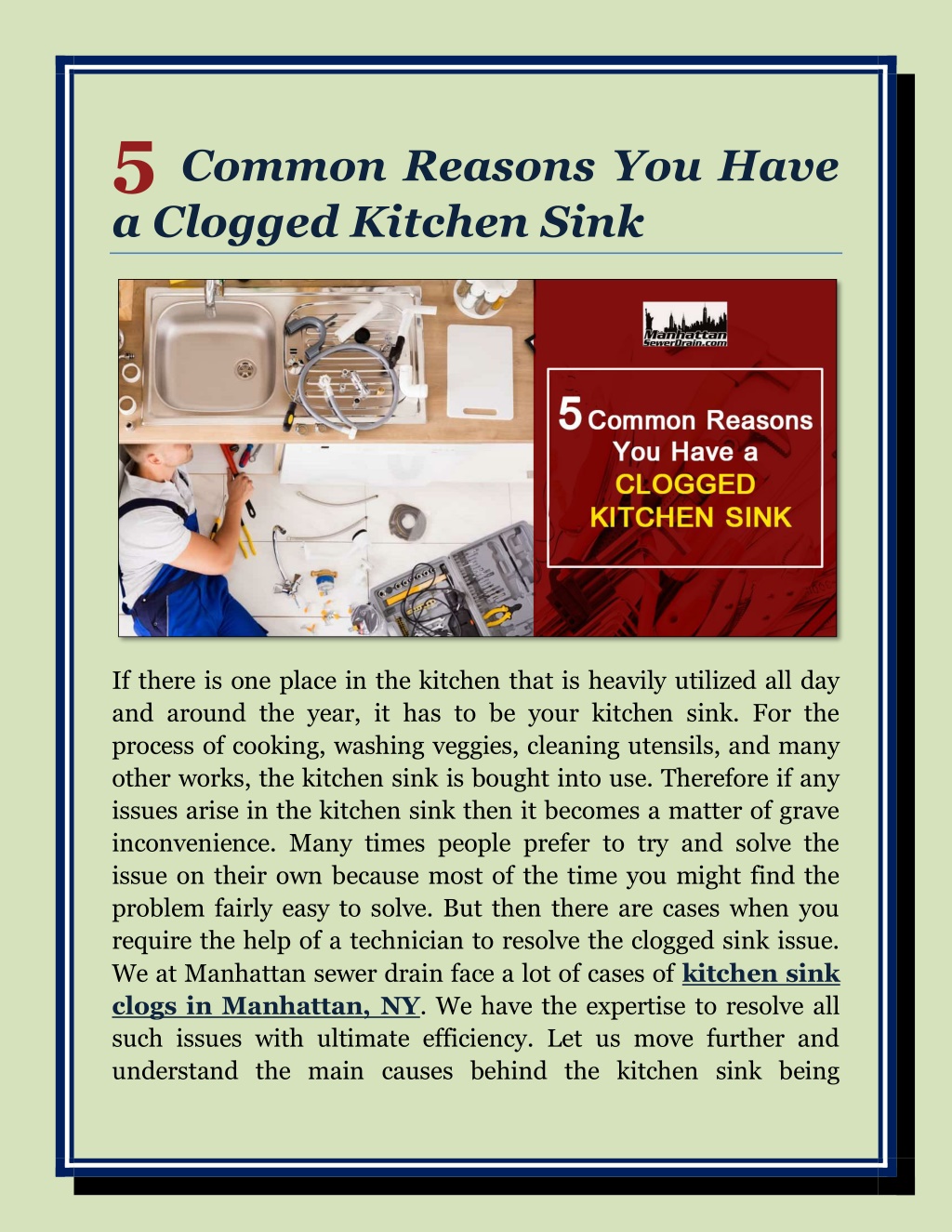




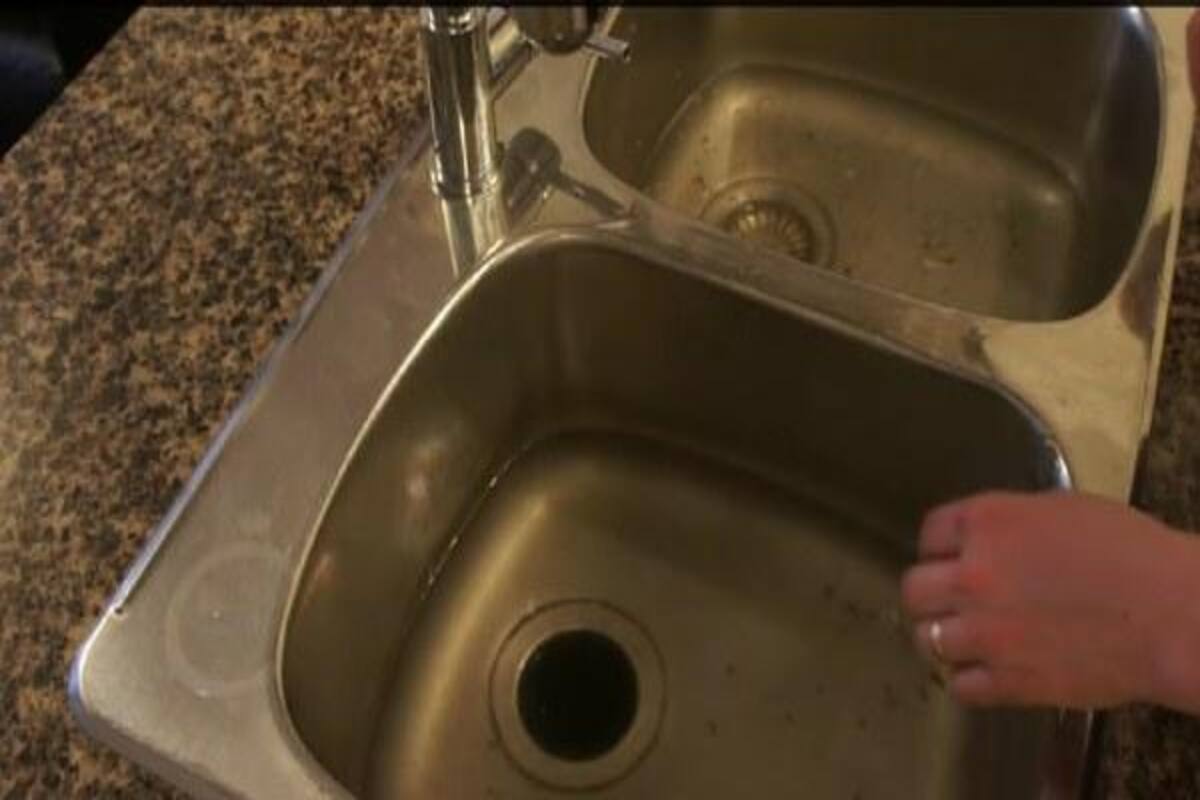

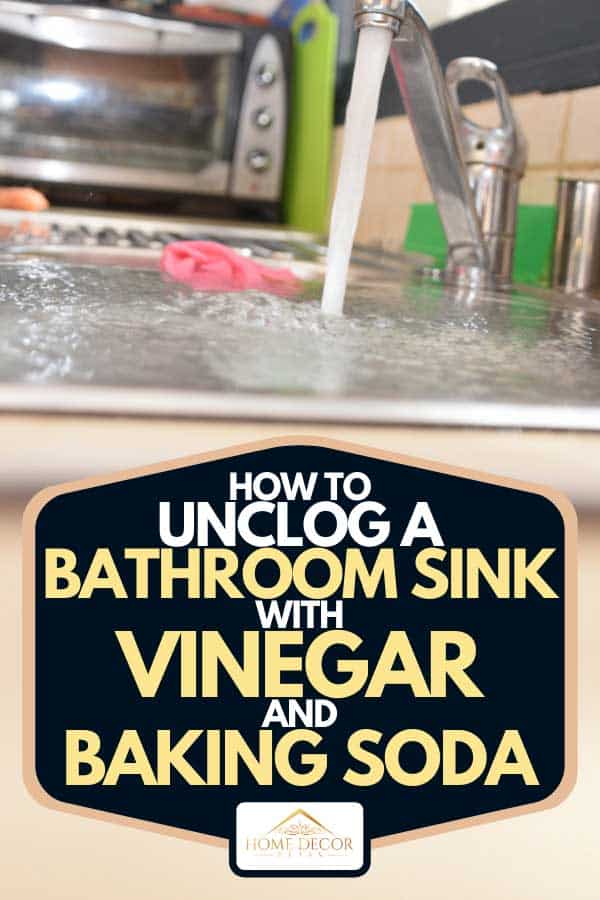
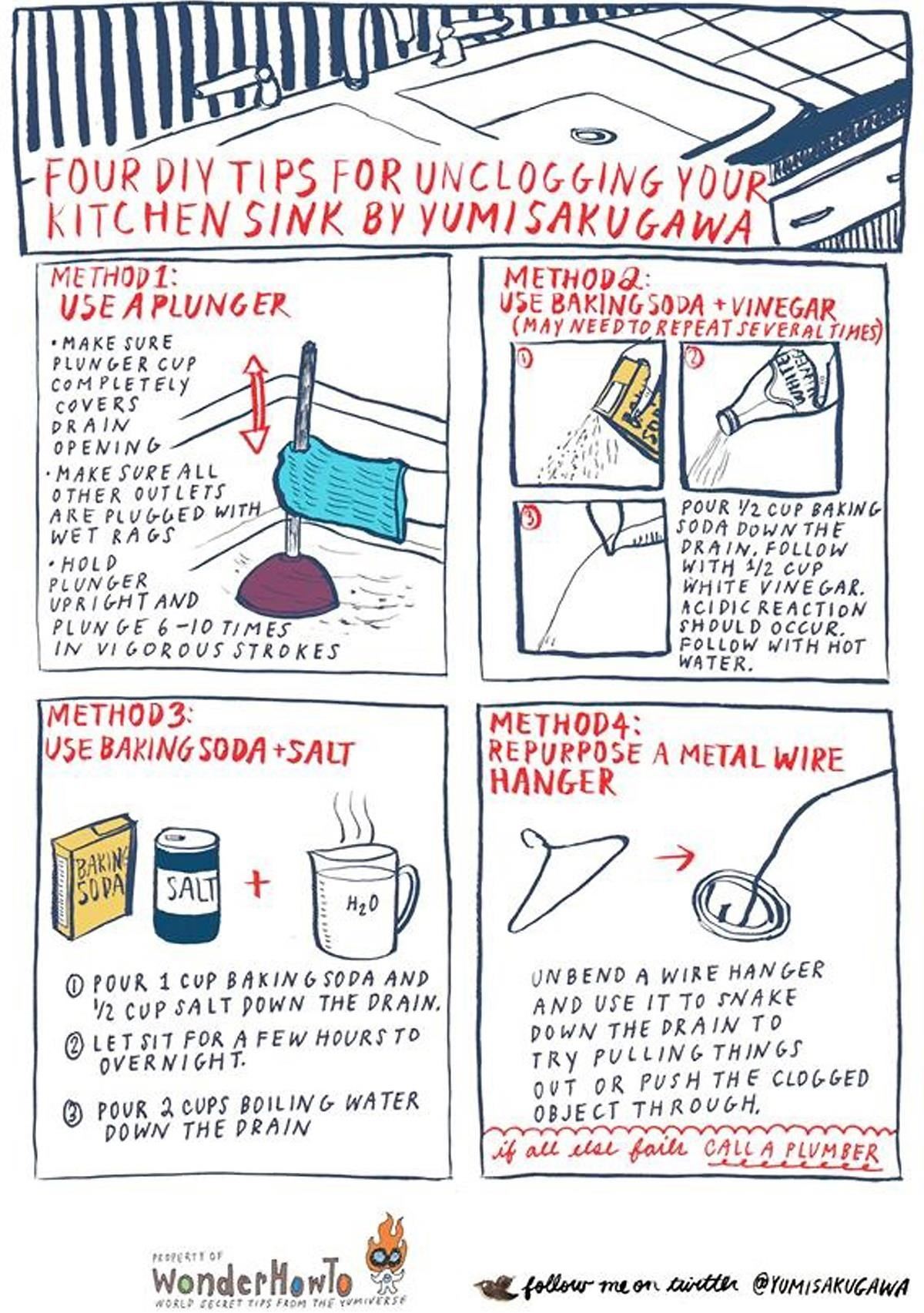
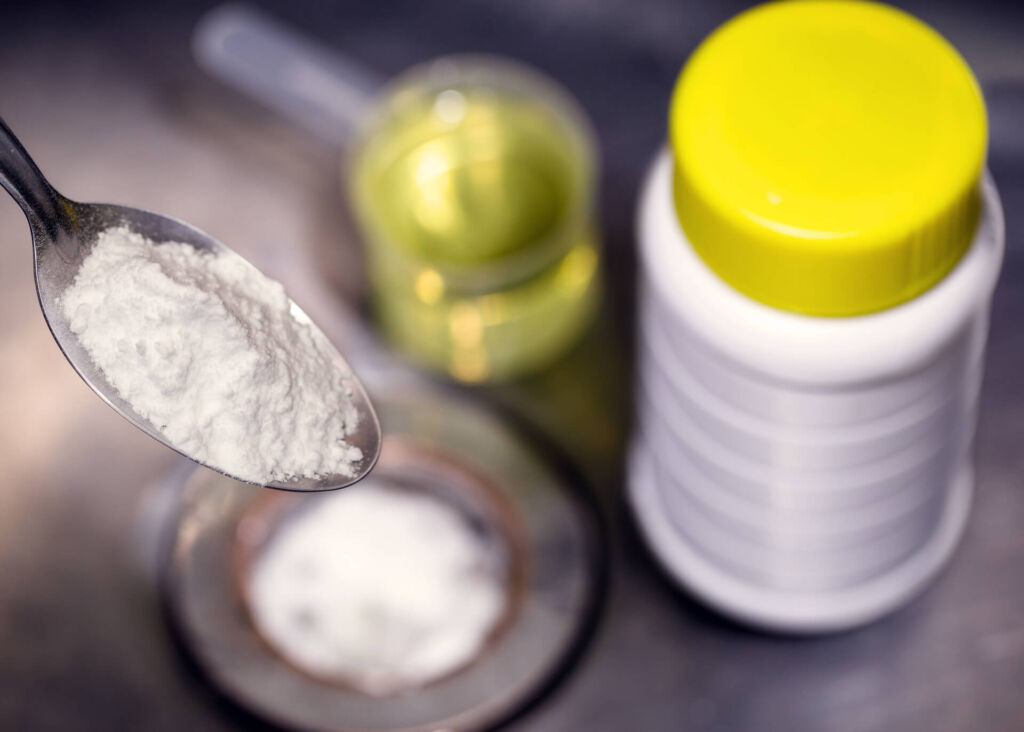









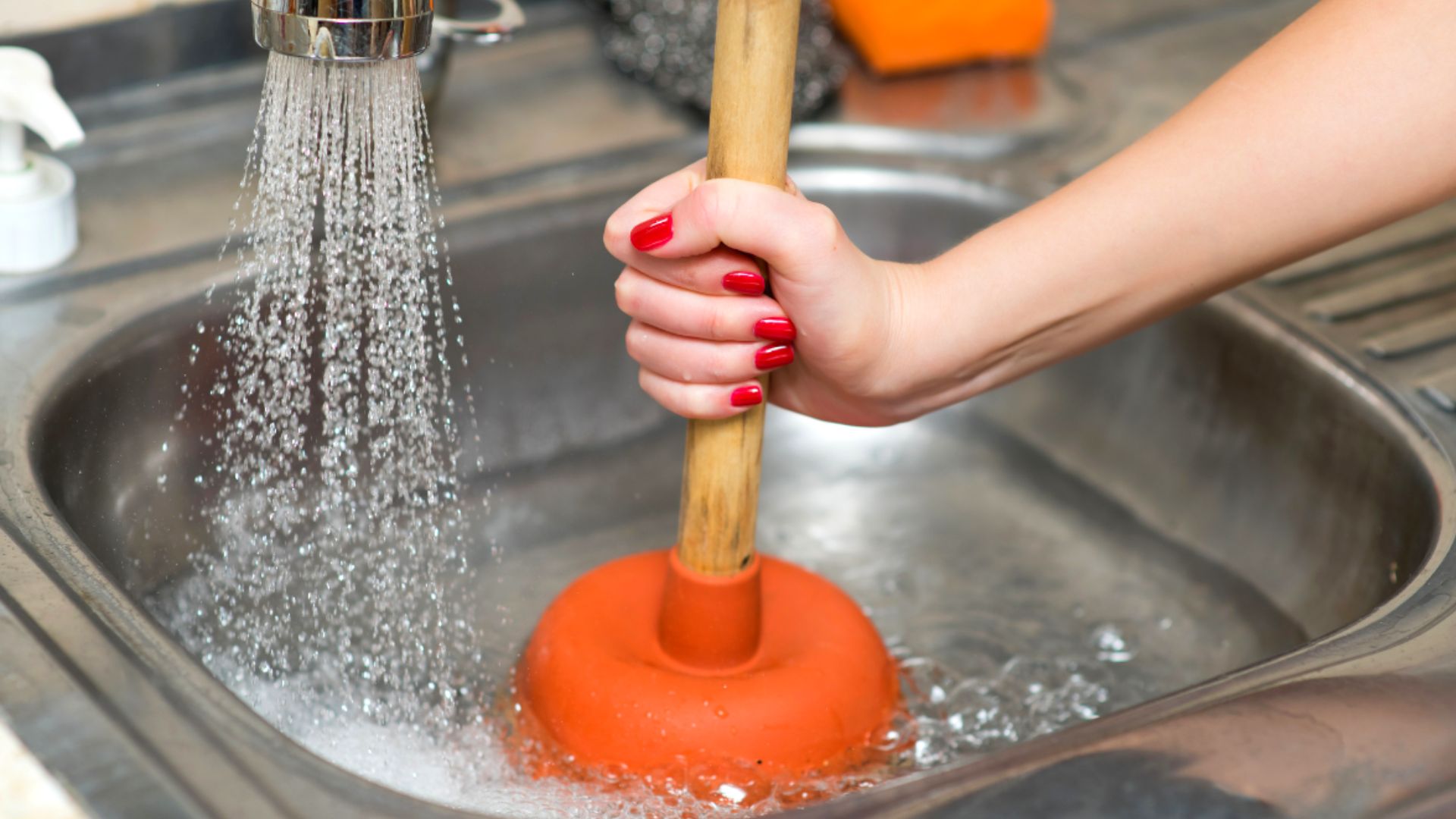



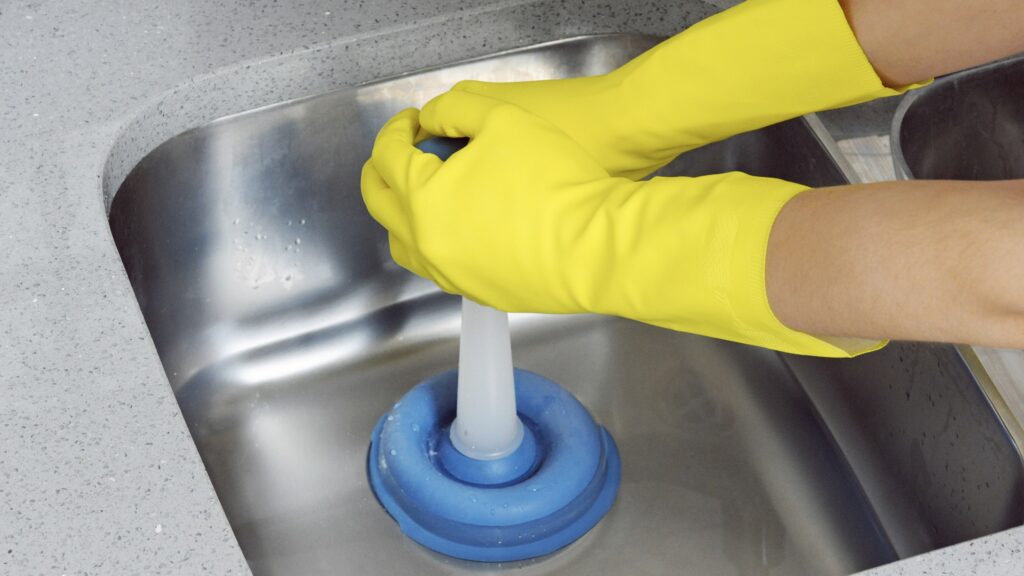

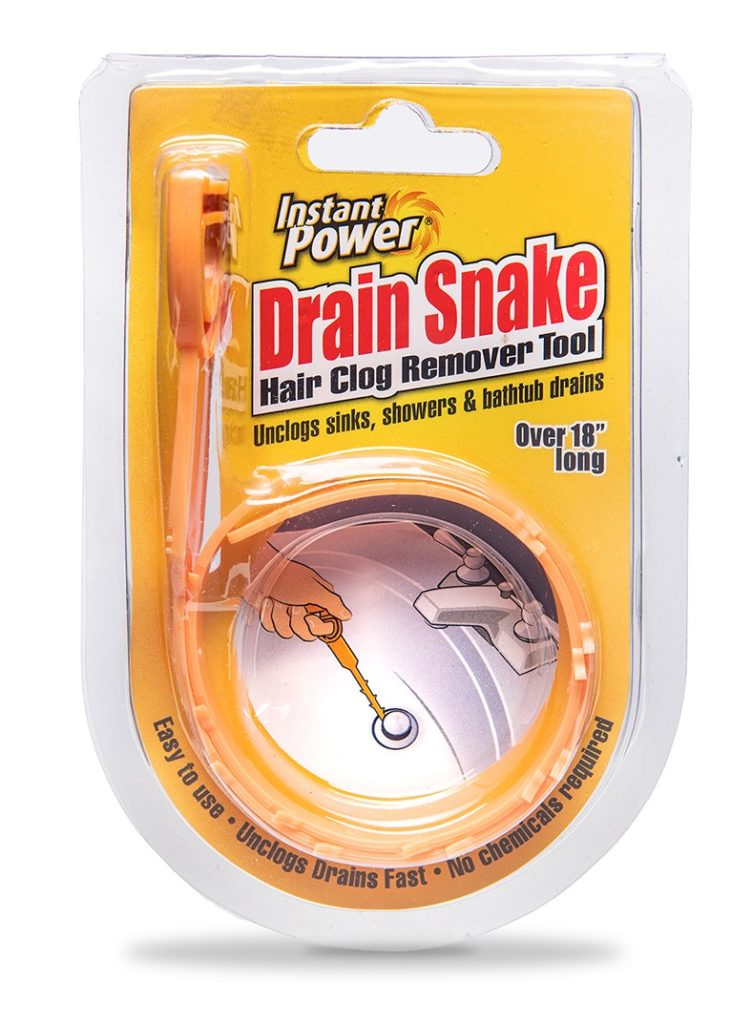



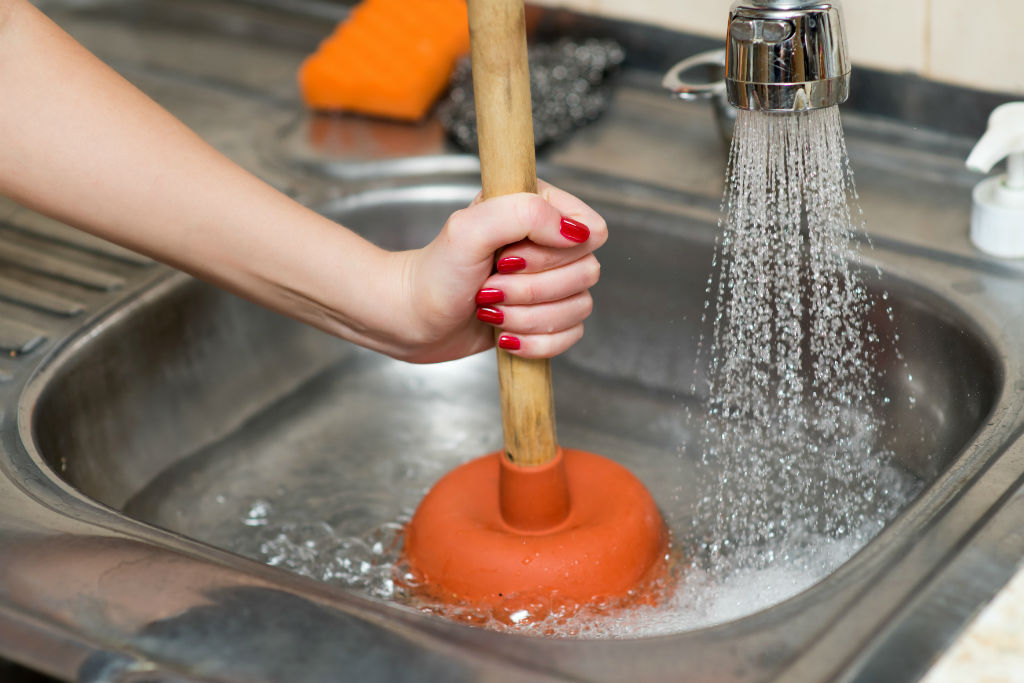










:max_bytes(150000):strip_icc()/freshen-and-unclog-drain-with-baking-soda-1900466-22-bbf940b70afa4d5abef0c54da23b1d3f.jpg)
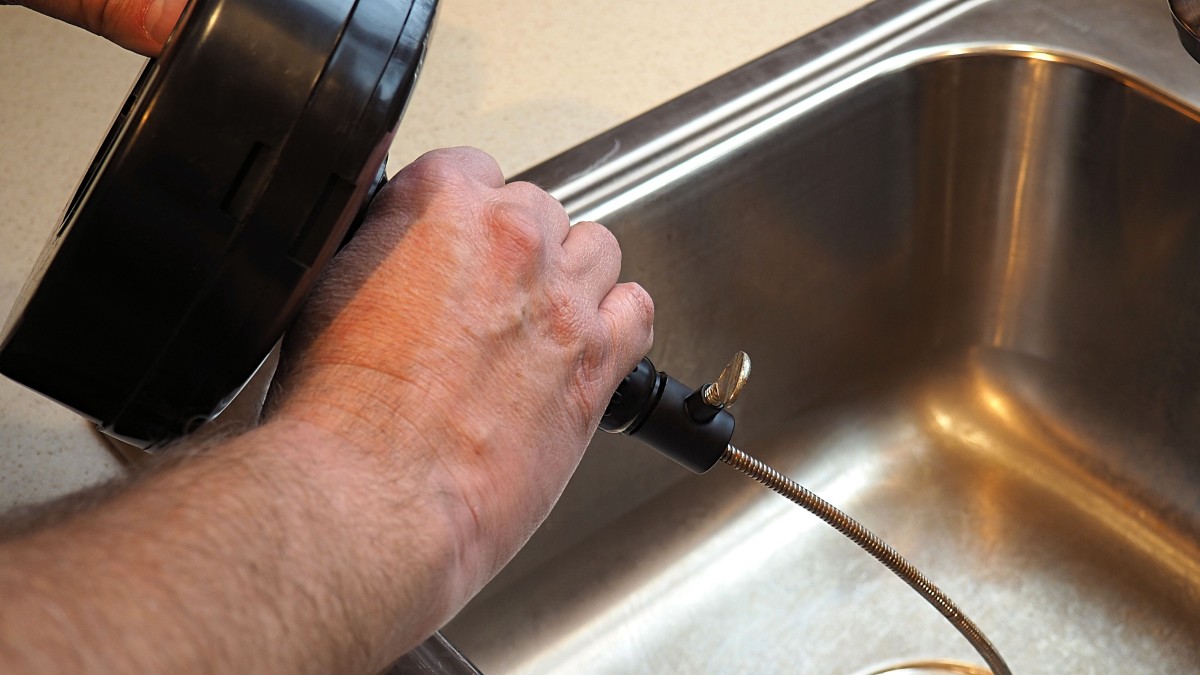

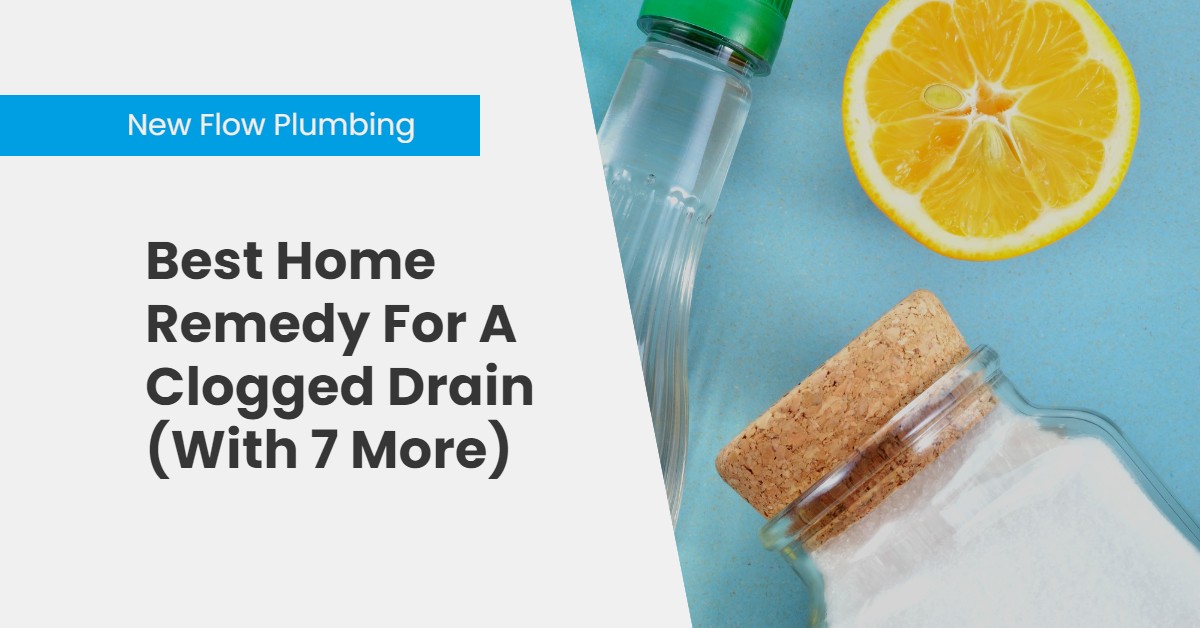



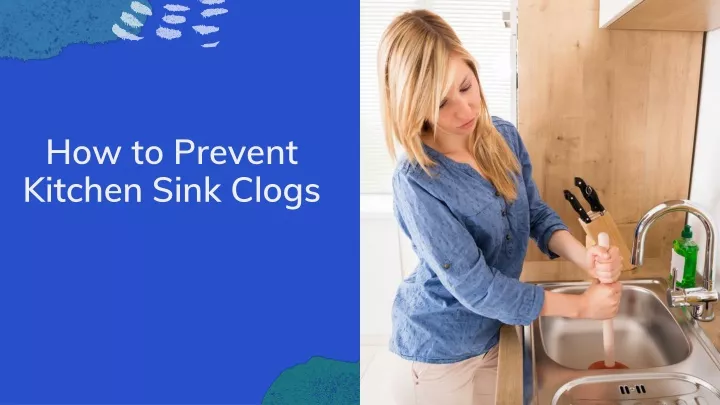
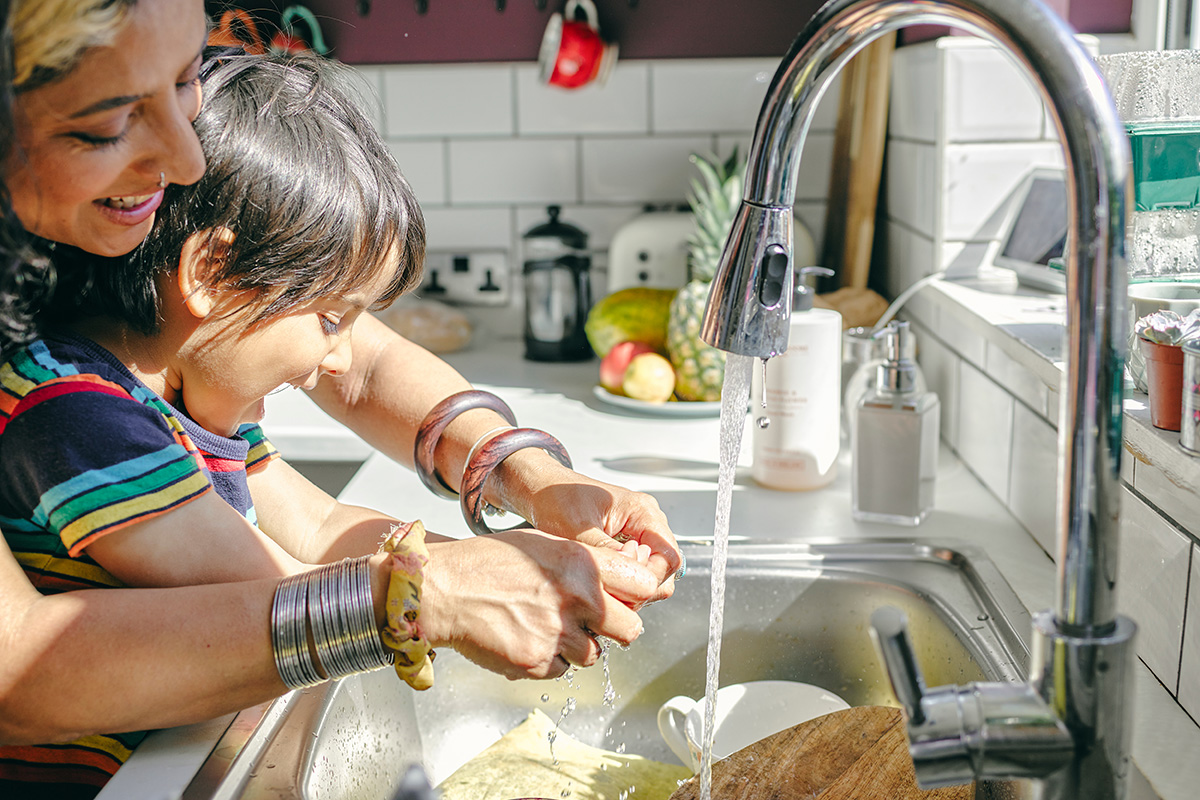
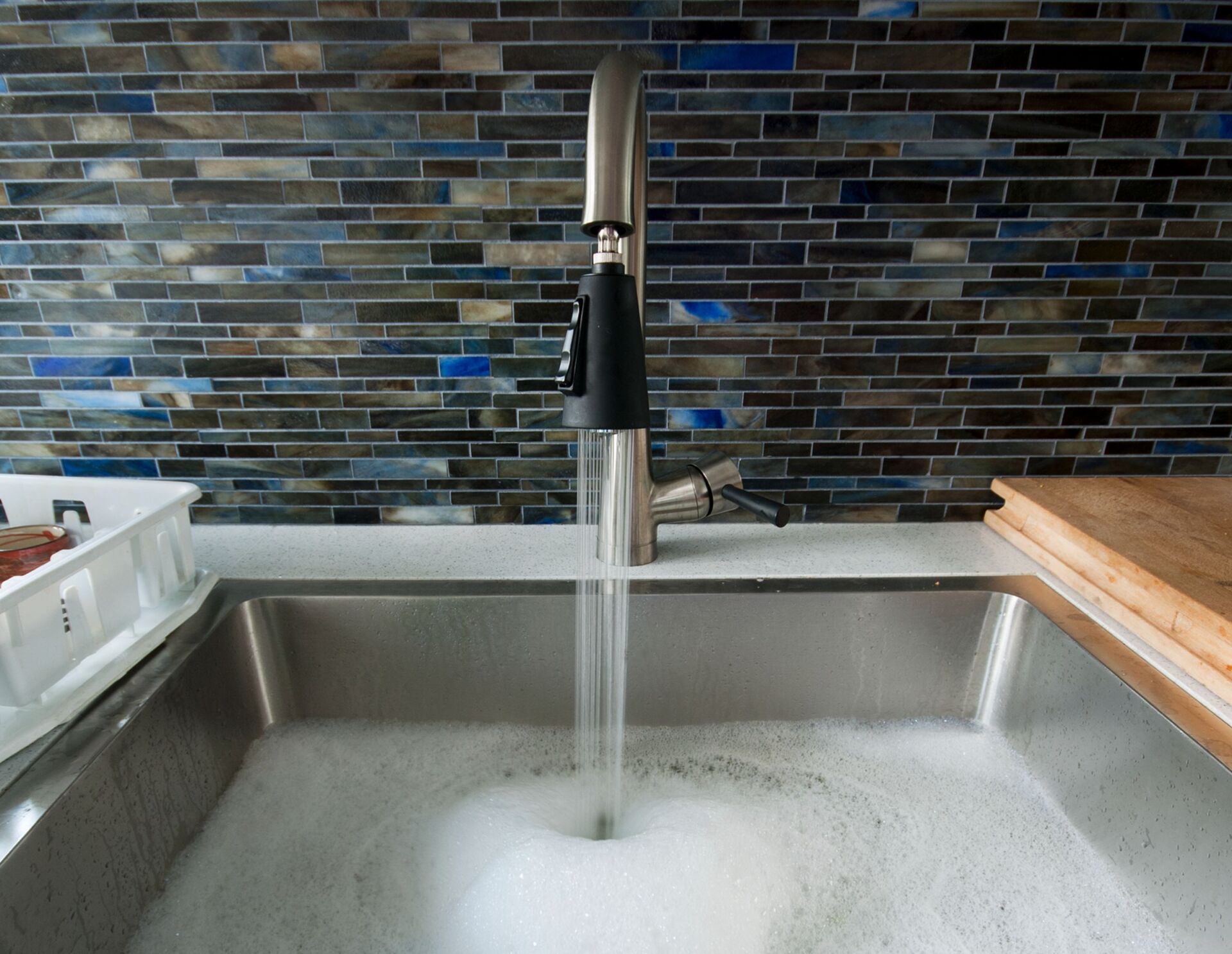





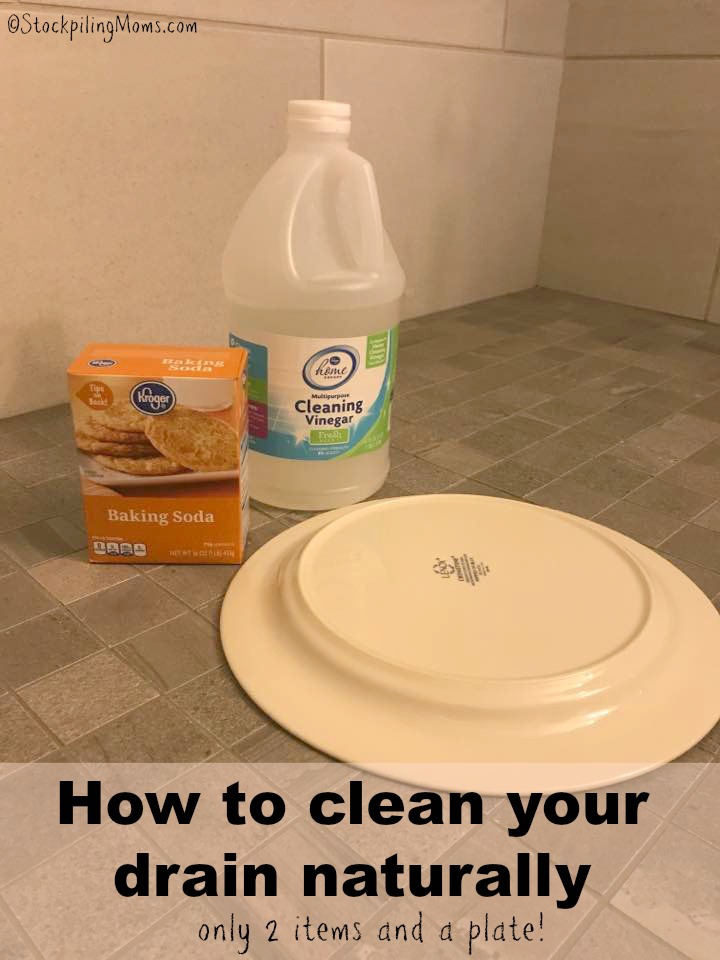

.jpg)







